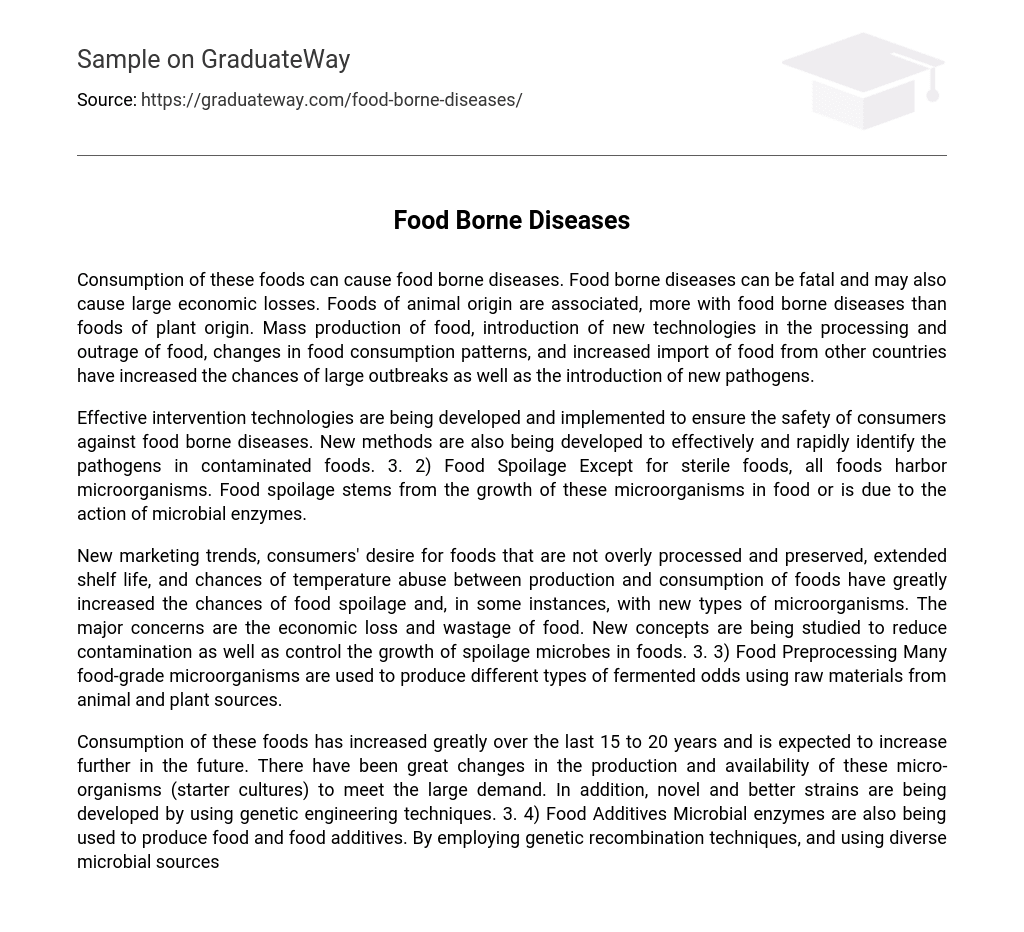Eating these foods can result in foodborne diseases, which can be deadly and have financial consequences. Foodborne diseases are frequently associated with animal-based foods rather than plant-based ones. The increase in large-scale food production, adoption of innovative processing techniques, mishandling of food, changes in dietary patterns, and higher importation of food from other countries have all contributed to a greater risk of widespread outbreaks and the emergence of new disease-causing agents.
Efforts are underway to create and deploy effective intervention technologies to safeguard consumers from foodborne illnesses. Moreover, novel techniques are being devised for the rapid and accurate detection of pathogens in tainted foods. It should be noted that the proliferation of microorganisms or microbial enzymes is accountable for food spoilage, with sterilized foods being an exception.
Due to new marketing trends, consumer demand for minimally processed and preservative-free foods, longer shelf life, and potential temperature abuse throughout the food production and consumption process, there has been a significant increase in the risk of food spoilage. Additionally, this has resulted in the emergence of novel types of microorganisms that cause spoilage. Economic losses and food wastage are the primary concerns associated with this issue. Researchers are currently investigating innovative methods to reduce contamination and effectively manage the growth of spoilage microorganisms in food. One such approach involves utilizing food-grade microorganisms to produce various fermented foods through food preprocessing using animal- and plant-derived raw materials.
The consumption of these foods has significantly increased in the past 15 to 20 years and is expected to continue rising in the future. The production and availability of these microorganisms (starter cultures) have greatly improved to meet the growing demand. In addition, genetic engineering methods are being used to create more advanced strains. Moreover, microbial enzymes from different microorganisms are employed for food and food additive manufacturing. These processes involve the use of genetic recombination techniques.





